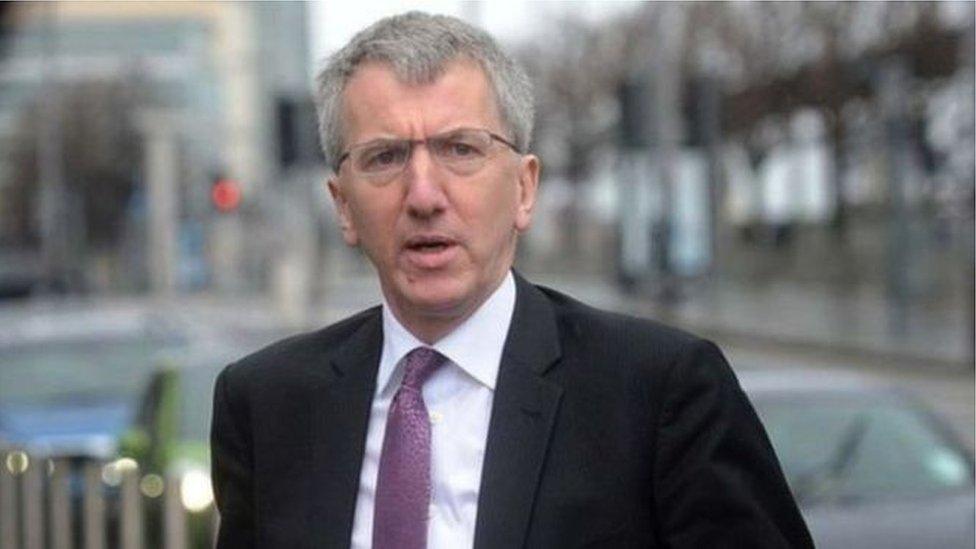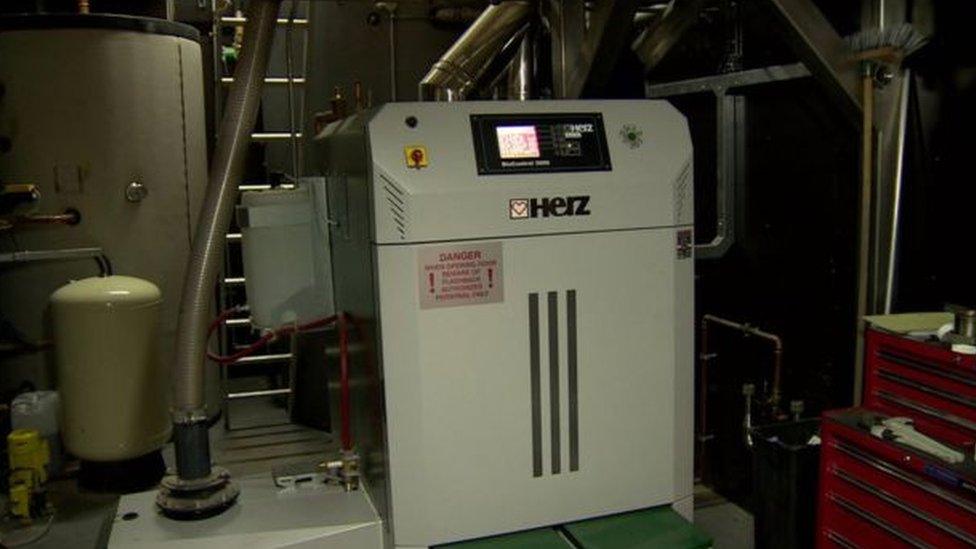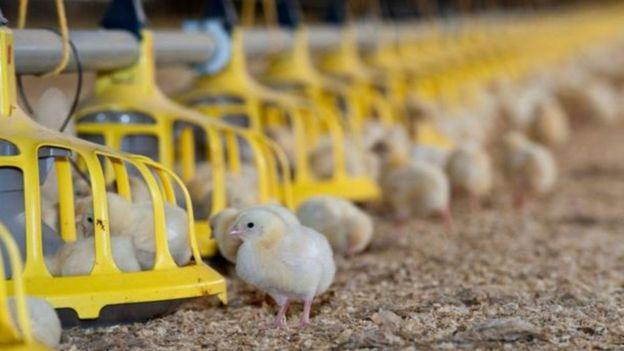RHI Inquiry: Witness contradicts Máirtín Ó Muilleoir evidence
- Published

A businesswoman has contradicted evidence given by former finance minister Máirtín Ó Muilleoir to the RHI inquiry.
In October 2018, the Sinn Féin MLA told Mr Justice Coghlin that in 2016 he had considered two people from the private sector to be his special adviser.
He said he had spoken to one of them, an unnamed businesswoman, but she had not been interested in the position.
That individual has said the phone call did not take place.
Mr Ó Muilleoir is adamant that it did and said the woman wanted nothing to do with the inquiry fearing "reputational damage."
In a statement to the inquiry the woman, named only as A, said she had never had a conversation with the former Sinn Féin minister in which he discussed her becoming his adviser or SPAD.
The issue of how SPADs were appointed became a focus at the inquiry amid claims that the proper appointments code, established by an act of the assembly, had sometimes been circumvented.
Ministers were supposed to appoint their advisers without outside influence and from a pool of qualified candidates.
But the inquiry heard ministers were sometimes told who their SPADs would be.

There are about 2,100 boilers in the Northern Ireland RHI scheme
On 12 November 2018, Mr Ó Muilleoir was sent an email by the inquiry requesting the names of the private sector people he had considered.
According to A's witness statement, Mr Ó Muilleoir phoned her the same day and asked to call to her house "for a chat".
'No way her name should be submitted'
He told her how he had testified that he had considered a number of candidates for the role of SPAD.
"He then asked me if we had ever previously had a conversation about me potentially becoming his SPAD.
"I said that we had not and he asked if we had 'ever had such a conversation even in jest'," she said.
In a text exchange five days later, she insisted there was "no way" her name should be submitted to the inquiry as someone whom Mr Ó Muilleoir had considered for the job of SPAD.
The following week she discovered, from a third party, that Mr Ó Muilleoir had supplied her name to the inquiry.

She later contacted him by email to express her concern at what had happened.
"I have since learned that….in spite of what I said on the 12 and 17 November, you may have gone ahead and submitted my name to the RHI inquiry team," she wrote.
"This is a matter of grave concern to me," she added.
In his reply, Mr Ó Muilleoir said he understood the woman's position but that he was under oath and had submitted a statement to the inquiry which "truthfully states that I did consider you as someone who would make a great SPAD."
In December 2018, Mr Ó Muilleoir was asked by the inquiry to account for the apparent discrepancies in his and A's positions and to explain why he had not mentioned the text and email contact with her in earlier witness statements.
'Under oath'
The former finance minister said he had a nine minute phone call with A on 24 May 2016, just after he had been told by Martin McGuinness that he was to be appointed to the Department of Finance.
He said from his perspective the purpose of the call was to "assess her interest, if any, in taking on the role of my special adviser".
He said he did not make a specific job offer because it was clear that because of the salary, the high profile nature of the role and the long hours, she was not interested.
He said when he called her on 12 November 2018 he had discussed that conversation with her but she had been "very clear that she did not want to be associated in any way with the inquiry due to the reputational damage she felt this would cause her".
Mr Ó Muilleoir told her he was under oath and would have to submit a truthful account.
He said they had also been in contact in respect of her potential appointment to another public role which showed that she was someone he respected and that he wanted to use her talents in the service of the department.
He said he hadn't mentioned his text and email contact with A in prior statements because nothing they discussed had altered his evidence to the inquiry.
- Published29 April 2019

- Published1 May 2019
